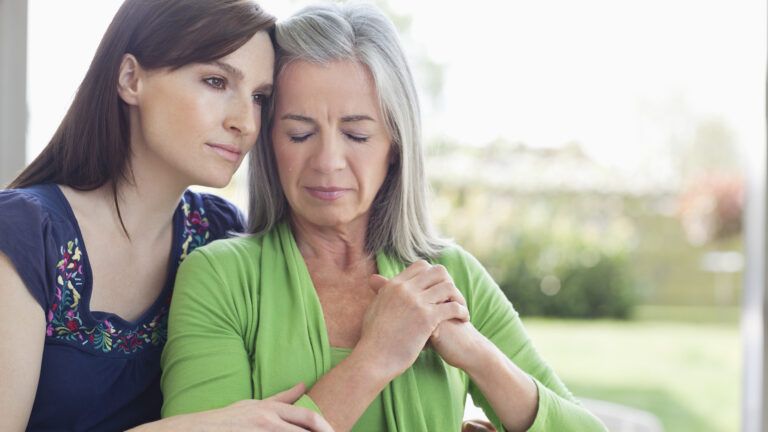Content provided by Cancer Treatment Centers of America
The holidays are difficult for some people, especially those who have just suffered a loss. It is vital that we not forget our grieving brothers and sisters as they face anger, sadness, loneliness and despair during a typically joyous time of year.
For caregivers of cancer patients, their attention has been focused on taking care of their loved ones for so long, placing all their energy in that area. When their loved one is no longer with them, a huge hole opens up, magnified by others’ Christmas celebrations.
Many different emotions affect those who have lost someone and are facing the holiday season without them. Anger at God is a common emotion. As God’s faithful, it is important to not judge those expressing this emotion and to be patient with them. It is a normal reaction that they will need to work through and talk about personally with God. Be available to talk with them through these emotions without judgment and persecution.
It is hard to know exactly how to help friends or loved ones through their grief during the holidays, as everyone experiences it in a different way. However, the most important points are to make yourself accessible to them, and to let them guide the dialog and interaction.
George A. Bonanno, PhD, in an article in Psychology Today, states, “Unfortunately, there isn’t a whole lot of science about grieving during the holidays, but most certainly many may experience intensification of grief and loss during this time that we all should be aware of.”
Encourage Their Memories
The Christmas holiday may trigger difficult and emotional memories of the past life shared with the departed.
It is important to allow for those mourning during the holidays to hang on to precious memories of their loved ones. Helping them keep their mind off of that person is a temporary fix to their grief. By celebrating memories, even if difficult, their loved one remains important in their lives.
Help them take familiar trips and participate in customary activities and family traditions. Any way you can support and walk alongside them as they continue their lives without their loved one can bring comfort and hope.
Create New Traditions
Life will look much different following the loss of someone so important in their lives. Creating new traditions and memories can help the caregiver see that life can continue in a promising way.
It may take a while to achieve this step, so do not push anything on your friends or loved ones until they are ready to embrace something new. A new tradition can represent a fresh beginning and the start of resuming their daily lives.
Give Your Time
One way to help a grieving caregiver could be to find a meaningful way to honor their loved one by serving others. Not only will they feel that they are keeping the deceased’s spirit alive through service to others, but there are studies that show that serving others can help lower the risk of depression, improve overall mental health and to even extend life.
Investigate opportunities to help them serve in an area that the loved one enjoyed, like planting a community garden. Or, say, if helping breast cancer fighters was important, seek out volunteer opportunities at a charity event or join their church’s efforts to deliver blankets and meals to those battling the disease. They can find numerous opportunities to get out of the house and continue their own lives, while still representing and honoring their loved one.
Allow Them to Drive The Bus
The biggest thing to remember in all areas of assisting someone who has recently lost a loved one is to let them control both the conversation and their level of activity. Everyone mourns differently, and while some may want to stay busy and talk about the tragedy they have just experienced, others may retreat and need time by themselves to process their loss.
However they react, you can comfort them by letting them know you are present and available to walk with them and pray with them. You may never know the value that your time and compassion will mean to surviving caregivers of a cancer patient, yet the importance of that grace and support is instrumental in their healing.
If you would like to start a cancer care ministry in your church to better support cancer patients and those who care for them, visit OurJourneyofHope.com or contact Rev. Percy McCray, National Director of Faith-based Programs at Cancer Treatment Centers of America, at percy.mccray@ctca-hope.com.





